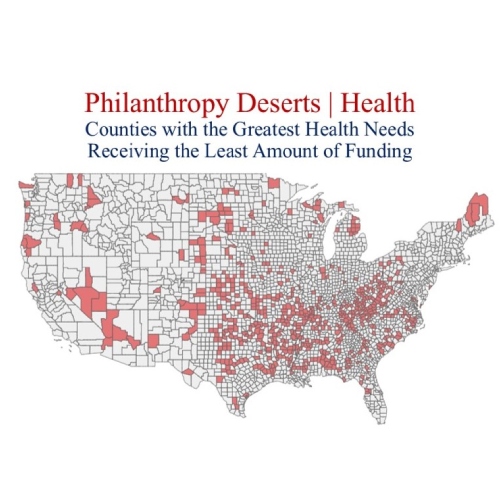BLOOMINGTON, Ind. - Brad Fulton, an associate professor at the Paul H. O’Neill School of Public and Environmental Affairs, has been awarded a $75,000 grant from the National Science Foundation to support research to identify “philanthropy deserts”—communities with the greatest needs that are receiving the least amount of charitable giving.
The grant will support Fulton’s project, Democratizing Data on Charitable Activity, which uses 10 years of IRS Form 990 data from every nonprofit organization that files with the IRS. Fulton and his team of data scientists have compiled data on 2.5 million grants distributed by foundations to grantees in 2020. Using these data, they have constructed a first-of-its-kind foundation-grantee network dataset that maps the distribution of philanthropic funds throughout the U.S. nonprofit sector.
“With more than $1 trillion in assets and distributing more than $100 billion in grants each year, philanthropic foundations have the capacity to significantly address community needs—as long as they distribute funds to communities proportional to their needs,” Fulton said. “However, evidence suggests that systemic bias influences philanthropic funding, resulting in a mismatch between the distribution of charitable resources and community needs.”
The practices appear to create “philanthropy deserts” where charitable giving reinforces rather than reduces inequities.
“Combining this data with data on community conditions, such as food security, affordable housing, education attainment, and environmental health, will identify mismatches between community needs and the distribution of charitable resources,” Fulton said. “Our study will focus on the communities with the greatest needs that receive the least amount of philanthropic funding.”
To conduct this project, Fulton is partnering with the Trust for Civic Life, Independent Sector, and Bridgespan. The findings will guide foundations in distributing financial resources more equitably and to the communities with the greatest needs. This project will also lay the foundation for broad collaborations among researchers, practitioners, and policymakers to examine the relationship between philanthropic funding, geographic location, and addressing community needs.
The project is unique in that no previous study has examined the scope and scale of geographic disparities in philanthropic giving and the role systemic bias plays in creating philanthropy deserts.


